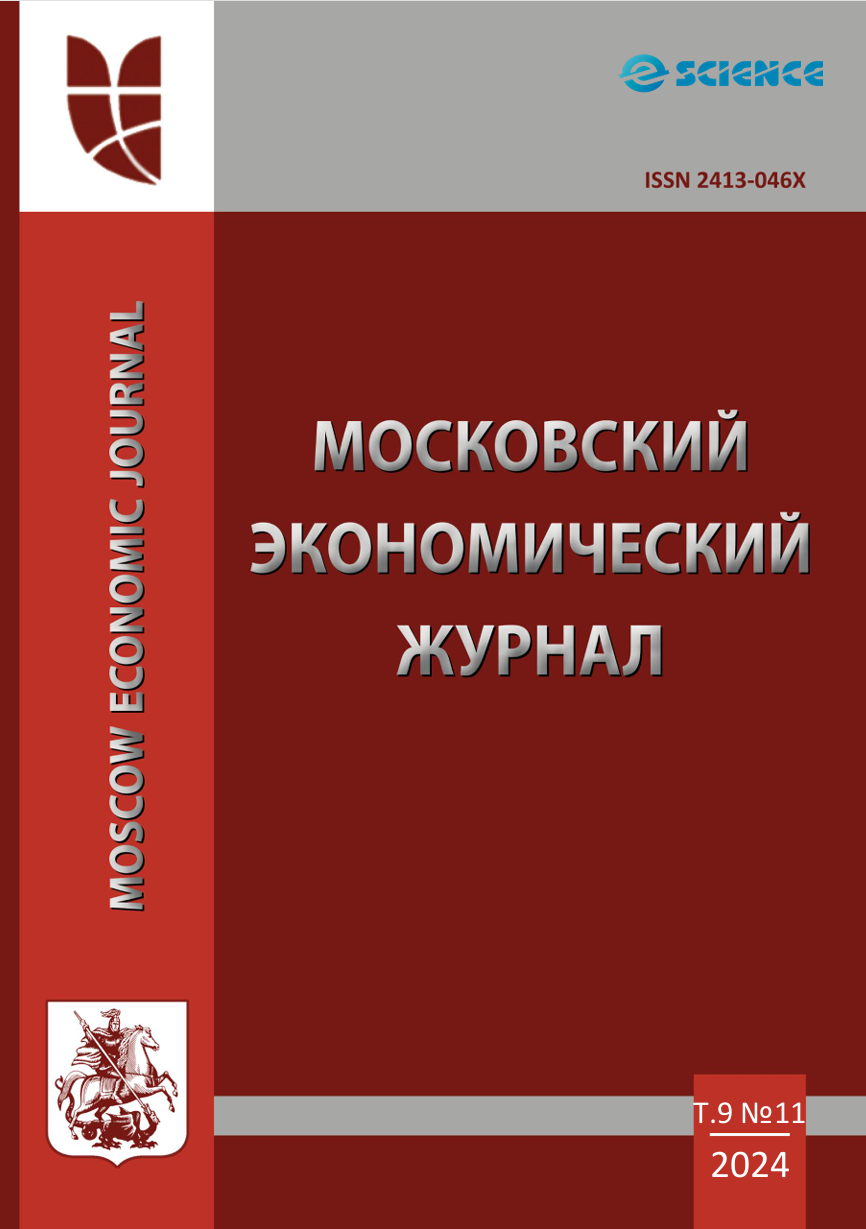from 01.01.1988 to 01.01.2024
UDC 330.341
The article is devoted to the development of a digital business model concept aimed at the effective integration of enterprises into innovative ecosystems in the context of dynamic technological changes and digital transformations. Traditional business models are poorly adapted to the new rules and features of the digital environment and become a competitive constraint that slows down innovation processes and restrains technological breakthroughs. The development of an adaptive digital business model is becoming relevant in the context of technological gaps and imbalances in industry potentials. The author defines the principles of adaptation of digital business models of enterprises, taking into account the technological profiles of both the enterprises themselves and the ecosystems into which they are integrated. The technological profile is determined by the level of digitalization, innovative potential and the ability to interact, which allows enterprises to choose the most effective integration strategies. Particular attention is paid to the analysis of integration models and trajectories taking into account the digital context. A matrix of management projections is proposed, which, based on an assessment of technological (including digital) gaps, identifies the positions of enterprises and integration models, such as incremental adaptation, technological convergence, integration reinforcement, cluster innovation leadership and others, which provide enterprises with flexibility in the context of digital transformation. Depending on the level of technological maturity and digital capabilities of enterprises and ecosystems, it is proposed to use digital frameworks such as business models of digital licensing, platform solutions, data sharing and analytics, cluster strategies and sustainable development, adapting them to changes in the technological environment. The implementation of these models allows enterprises not only to improve operational efficiency, but also to strengthen interaction with partners, which contributes to the development of innovative capabilities of the ecosystem, the activation of regional innovations and the achievement of a synergistic effect on the scale of the entire territory.
innovative infrastructure, territorial ecosystem, digital framework of business model, integration trajectories, technological profile, digital transformation, management projections
1. Vayl P. Cifrovaya transformaciya biznesa: izmenenie biznes-modeli dlya organizacii novogo pokoleniya / P. Vayl, S. Vorner; per. s angl. – Moskva: Al'pina Pablisher, 2019. 264 s.
2. Gileva T.A. Innovacionnaya ekosistema territorii: instrumenty upravleniya razvitiem v cifrovoy srede // Problemy ekonomiki i yuridicheskoy praktiki. 2024. T. 20. № 4. S. 174-183.
3. Larionov V.G., Sheremet'eva E.N., Gorshkova L.A. Innovacionnye ekosistemy v cifrovoy ekonomike // Vestnik Astrahanskogo gosudarstvennogo tehnicheskogo universiteta. Seriya: Ekonomika. 2020. № 1. S.49-56. URL: https://cyberleninka.ru/article/n/innovatsionnye-ekosistemy-v-tsifrovoy-ekonomike.
4. Linc K. Radikal'noe izmenenie biznes-modeli: adaptaciya i vyzhivanie v konkurentnoy srede / K. Linc, G. Myuller-Stivens, A. Cimmerman; per. s angl. Moskva:Al'pina Pablisher. 2019. 311 s.
5. Pushkin, I. S., Lyandau, Yu. V. i dr. Cifrovaya transformaciya biznes-modeley// Innovacii i investicii. 2019. № 5. S. 69-72.
6. Rahlis T.P. Ekonomicheskaya ocenka cifrovoy transformacii promyshlennogo predpriyatiya // Ekonomika i predprinimatel'stvo. 2019. № 12 (113). S. 1265-1270.
7. Slugin O.V., Belent'eva T.N. Analiz vliyaniya cifrovoy transformacii biznesa na izmenenie biznes-modeli kompanii// Karel'skiy nauchnyy zhurnal, seriya Ekonomika i upravlenie, 2019, T.8, № 4(29). S. 104-107. URL: https://cyberleninka.ru/article/n/analiz-vliyaniya-tsifrovoy-transformatsii-biznesa-na-izmenenie-biznes-modeli-kompanii
8. Suscheva N.V., Rastova N.V., Salim'yanova I.G. Strategii cifrovoy transformacii: aktual'nye programmy issledovaniy // Vestnik Omskogo gosudarstvennogo tehnicheskogo universiteta. 2022. T.7. № 3. S. 77-83. URL: https://cyberleninka.ru/article/n/strategii-tsifrovoy-transformatsii-aktualnye-programmy-issledovaniy.
9. Stepchenko V.G., Glushak N.V., Glushak O.V., Hlebnikov K.V. Analiz modeley tehnologicheskogo transfera – ekonomicheskogo mehanizma preodoleniya innovacionnogo razryva // Vestnik Altayskoy akademii ekonomiki i prava. 2019. № 8. S. 191-198. DOI https://doi.org/10.17513/vaael.687
10. Tyapuhin A.P., Korovin Yu.I., Matveeva O.B. Cennostnyy podhod k upravleniyu innovacionnym razvitiem hozyaystvuyuschih sub'ektov // Vestnik Evraziyskoy nauki, 2019 №5 // Vestnik evraziyskoy nauki. 2019. №5. URL: https://cyberleninka.ru/article/n/tsennostnyy-podhod-k-upravleniyu-innovatsionnym-razvitiem-hozyaystvuyuschih-subektov
11. Ustinova L.N., Makarov A.M., Britvina V.V. Model' cifrovoy transformacii innovacionnoy ekosistemy na osnove tehnologicheskoy platformy //π –Economy.2022.T15. №4. S.110-122. URL: https://cyberleninka.ru/article/n/model-tsifrovoy-transformatsii-innovatsionnoy-ekosistemy-na-osnove-tehnologicheskoy-platformy (data obrascheniya: 13.11.2024).
12. Porter M., Happelmann Dzh. Revolyuciya v proizvodstve: «umnye» tehnologii perekraivayut kompanii // Harvard Business Review – Rossiya, 2015. Noyabr'. S. 74–93.
13. Slywotzky, A. and Morrison, D. (2001), «How digital is your organization?», Strategy & Leadership, Vol. 29 No. 2. https://doi.org/10.1108/sl.2001.26129bab.003
14. Schalmo D., Williams C., & Boardman L. Digital Transformation of busness models – Best practice, enablers, and roadmape //International Journal of Innovation Management, ,Vol. 21, No. 8 (December 2017) 1740014 (17 pages)













